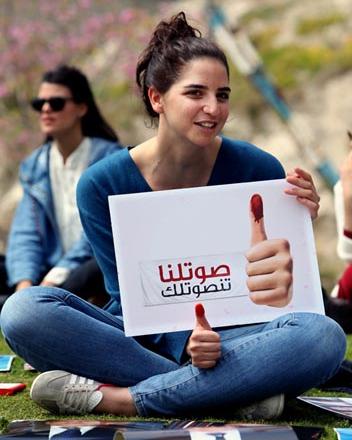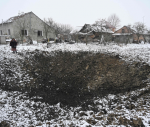You are here
‘Bittersweet victory’ for Moroccan women facing domestic violence — activists
By Reuters - Mar 03,2018 - Last updated at Mar 03,2018
BEIRUT, Lebanon — A hotly-debated new law aimed at protecting women in Morocco against domestic violence does not go far enough, said women’s rights activists who have campaigned for reform for years.
The law passed in the Muslim country earlier this month criminalises “harassment, aggression, sexual exploitation or ill treatment of women”, according to the women’s ministry.
But it failed to define domestic violence or explicitly outlaw marital rape said Rothna Begum, Middle East women’s rights researcher for Human Rights Watch (HRW).
“While Morocco is going out of its way to pat itself on the back, they need to take far more reform to protect all women from violence,” she told the Thomson Reuters Foundation.
By criminalising forced marriage and the expulsion of a spouse from the home, the law is a “bittersweet victory” for activists in Morocco, who have been pushing for reforms for more than a decade, she added.
Sexual harassment and abuse of women is rife in Morocco where a national survey found that nearly two-thirds of women had experienced physical, psychological, sexual or economic abuse.
A video of a young woman being sexually assaulted by a gang of teenage boys on a bus in Casablanca last year sparked outrage in the country.
Saadia Wadah, a women’s rights lawyer and activist based in Casablanca said that the law is a “positive” step forward, despite its “gaps and flaws”.
In pushing through reform, Morocco follows Tunisia, which passed its own law protecting women against violence last year, but other Arab countries like Egypt, Kuwait, and Yemen have yet to do so, said Begum.
The law allows for protection orders that prohibit an accused person from contacting or approaching a victim during or after criminal prosecutions.
Stephanie Willman, co-founder of Mobilising for Rights Associates, a women’s rights group, said this was “terrible”.
“Women shouldn’t have to file criminal charges to get a protection order,” she said by phone from the capital, Rabat.
“Most women who are victims of violence in Morocco will be left unprotected because of this.”
Few women file criminal cases against abusive spouses and most are dropped because of family pressure or financial dependence on their abusers, HRW said.
Related Articles
Lebanon’s parliament on Tuesday passed a law making domestic violence a criminal offence, after a years-long campaign by civil society groups in a sectarian Arab country steeped in conservativism.
RABAT, Morocco — Morocco announced on Wednesday the arrest of a man allegedly seen in an online video sexually assaulting a girl in broad da
AMMAN — Human Rights Watch (HRW) group on Wednesday commended the Jordanian Parliament for approving a series of important human rights refo

















